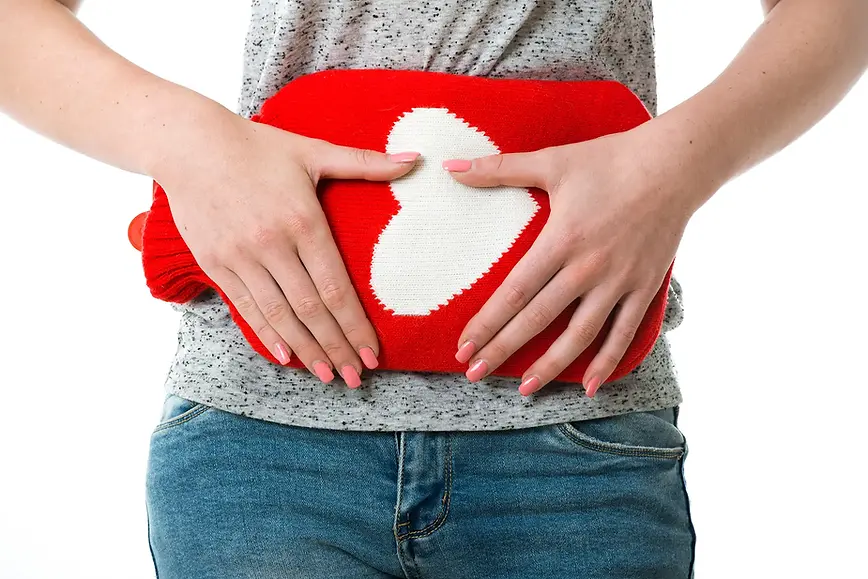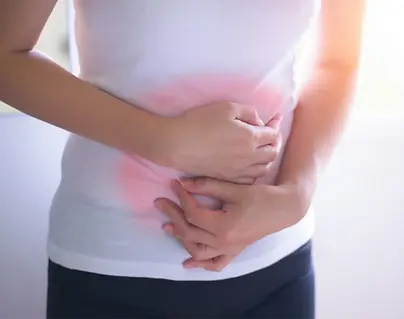
Painful Menstruation (Dysmenorrhea) Treatment In Singapore
Struggling with painful periods in Singapore? Severe menstrual cramps, also known as dysmenorrhea, can interfere with work, school, and daily life. If your period pain is persistent or worsening, it may be linked to underlying conditions such as endometriosis, fibroids, or adenomyosis. Fortunately, effective dysmenorrhea treatment in Singapore is available to relieve symptoms and protect your reproductive health.


What is Dysmenorrhea?
Dysmenorrhea refers to period pain that goes beyond normal cramps and disrupts daily activities. The pain usually starts in the lower abdomen and may spread to the back or thighs.
Types of dysmenorrhea:
-
Primary dysmenorrhea – Caused by uterine contractions, typically starting within a year of the first period.
-
Secondary dysmenorrhea – Due to underlying gynaecological conditions such as endometriosis, fibroids, or pelvic infections.
Causes of Painful Periods in Singapore
Several gynaecological conditions may cause painful menstruation:
Endometriosis
Womb-lining tissue grows outside the uterus (on the ovaries, tubes, or pelvic wall), causing inflammation, adhesions, and severe cramps.
Adenomyosis
When womb lining tissue grows into the uterine muscle, the uterus enlarges and periods become heavier and more painful.
Uterine Fibroids
Benign growths in the uterus that distort its shape, press on pelvic organs, and trigger cramps.
Pelvic Inflammatory Disease (PID)
Untreated sexually transmitted infections (e.g., chlamydia, gonorrhoea) may spread to the pelvis, causing adhesions, abscesses, and chronic pain.
Ovarian Cysts
Large cysts can rupture, bleed, or twist (torsion), causing intermittent or sudden pain.
Cervical Stenosis
A narrowed cervix can block menstrual flow, raising uterine pressure and worsening cramps.

Symptoms of Dysmenorrhea
Period pain may be accompanied by:
-
Lower back or thigh pain
-
Nausea, vomiting, diarrhoea
-
Dizziness or headaches
-
Poor sleep and fatigue
-
Reduced productivity and quality of life
Why You Should Not Ignore Dysmenorrhea
Persistent menstrual cramps may indicate:
Fertility problems – Endometriosis, fibroids, and PID can damage the uterus, tubes, and ovaries.
Reduced quality of life – Chronic pain affects sleep, mood, libido, and energy.
Underlying conditions – Pain may be a warning sign of ovarian cysts, infections, or even cancer.
If your menstrual cramps are severe, do not ignore them, as early diagnosis improves treatment outcomes.

Treatment Options for Dysmenorrhea in Singapore
Treatment depends on the cause, severity, and your fertility goals.
1
Non-Hormonal Pain Relief
-
Paracetamol – For mild pain.
-
NSAIDs – For moderate pain. It can also reduce inflammation.
-
Opioids – Reserved for severe pain when other medications are ineffective.
2
Hormonal Therapy
-
Birth control pills – Regulate hormones and reduce endometrial tissue growth, resulting in lighter and less painful periods.
-
Progestin-only therapy – Has a similar mechanism as the combined oral contraceptives - thins the uterine lining, suppresses ovulation and inflammation of endometrial tissue deposits.
-
GnRH agonists – Temporarily lower oestrogen levels to shrink endometriotic lesions.
3
Surgical Options
-
Dilation & Curettage (D&C) – Temporarily relieves symptoms but does not treat root causes such as fibroids or endometriosis.
-
Laparoscopic excision/ablation – Removes endometriotic lesions and adhesions, restoring pelvic anatomy.
-
Fibroid or cyst removal – Performed via open or minimally invasive surgery.
4
Other Therapies
-
Physical therapy / TENS – Relaxes pelvic muscles and reduces cramps.
-
Lifestyle management – Regular exercise, stress management, healthy sleep, and a nutrient-rich diet may improve symptoms.
Choosing the Right Treatment
-
Mild cramps – Heat packs, exercise, and oral painkillers.
-
Moderate pain or heavy bleeding – Add hormonal therapy if needed.
-
Endometriosis or fibroid-related pain – May require both medical and surgical treatments.
-
If trying to conceive – Focus on pain relief and non-hormonal options.
When to See a Gynaecologist
Book an appointment if you experience:
-
Period pain that disrupts daily life
-
Heavy bleeding (changing pads every 1–2 hours)
-
Persistent bloating, pelvic pressure, or swelling
-
No relief from painkillers
Your gynaecologist may recommend a pelvic exam, ultrasound, MRI, or laparoscopy to confirm the diagnosis.
Experienced Dysmenorrhea Specialist in Singapore – Dr Daniel Koh
At Daniel Koh Clinic, we provide personalised treatment for painful periods and underlying causes such as endometriosis, fibroids, and ovarian cysts.
Dr Daniel Koh is a gynaecologist in Singapore who has a subspecialty training in reproductive medicine and maternal–fetal medicine. This means your care is comprehensive—covering period pain relief, fertility preservation, pregnancy, and postpartum health.
Take the first step towards relief. Book an Appointment with Dr Daniel Koh.
FAQs about Painful Periods in Singapore
Comprehensive Women’s Health Care
Painful menstruation is not normal. It may be the first sign of conditions that affect your fertility and long-term health. With an integrated, patient-centred approach, Dr Daniel Koh ensures you receive effective care—whether you’re managing painful periods, planning for pregnancy, or navigating all stages of reproductive health.
.png)